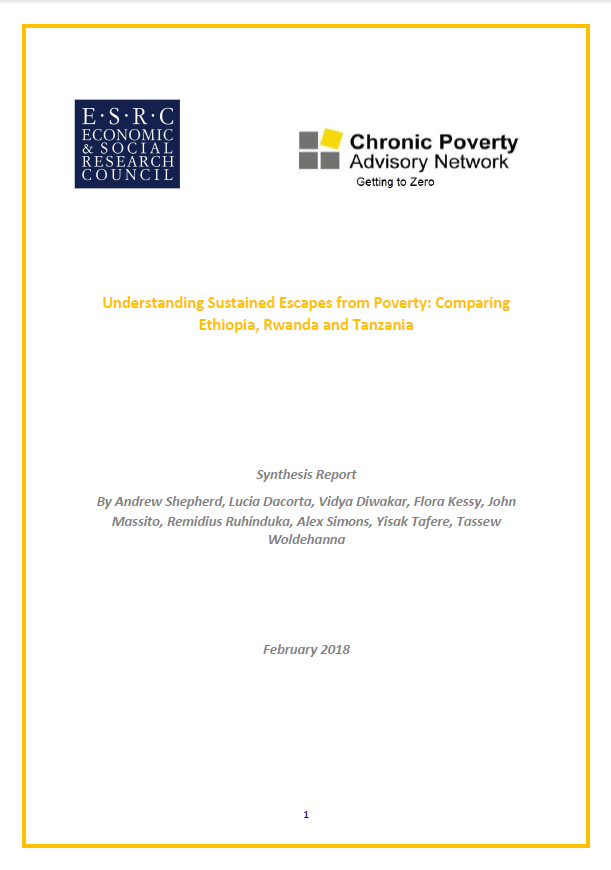The third international Chronic Poverty Report drew attention to two phenomena in poverty dynamics: the possibility that impoverishment could exceed escapes from poverty in a given period of time, and that people who escapes poverty were vulnerable to falling back in, that this was not a marginal trend, but a substantial one. However, there was little knowledge about what differentiated a sustained escape from a temporary escape, or these from chronic poverty. This is the gap this research was designed to fill.
The overall aim of this project is to increase our understanding of the factors associated with sustained escapes from poverty, of how policies and programmes can support these escapes and the political and institutional pre-conditions under which these policies can successfully be initiated.
The research is unashamedly empirical, though guided by some expectations. It was thought that sustained escapes would be possible and greater where: (i) risks were lower or better protected or insured against; (ii) opportunities were greater, for example, for employment; and (iii) where poor people’s resources or capabilities matched those opportunities. Of the three countries selected for intensive study, and based on the literature on poverty, policies and politics for those countries, we expected to find sustained escapes in Ethiopia and Rwanda, and less so in Tanzania. The conclusion will reflect on the degree to which these expectations worked out in practice.
The research reported here and supported by the UK’s Economic and Social Research Council is part of a wider set of country studies on sustained escapes from poverty, including Bangladesh, Cambodia, Kenya, Malawi, Nepal, Niger, Philippines, and Uganda. There are published papers on Bangladesh, Ethiopia and Uganda; the rest will be published in 2018.
Authors: Andrew Shepherd, Lucia Dacorta, Vidya Diwakar, Flora Kessy, John Massito, Remidius Ruhinduka, Alex Simons, Yisak Tafere, Tassew Woldehanna
Download the report here.


